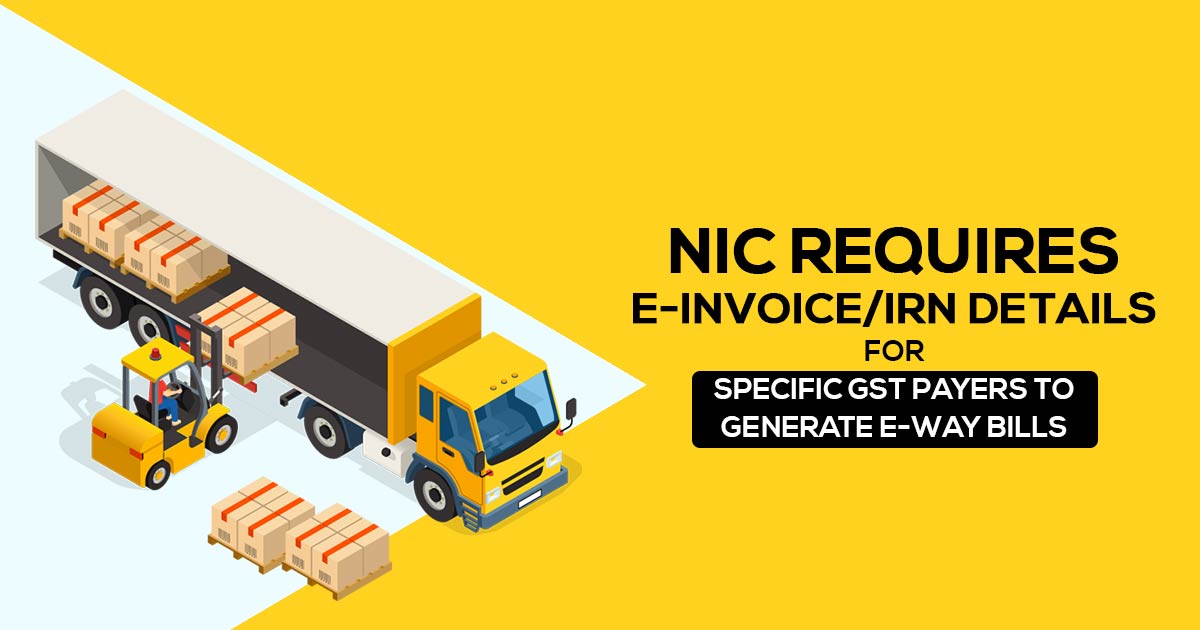
Starting March 1, 2024, the National Informatics Centre (NIC) has announced that certain GST payers must have e-invoice details to generate GST e-way bills.
This requirement applies specifically to e-invoice-enabled taxpayers involved in B2B and export transactions. However, for other transactions like B2C, the e-way bill process remains unchanged, operating as usual. Currently, businesses with an annual turnover of ₹5 crore or more must issue e-invoices, encompassing around 10 lakh assessees. Notably, this count excludes exempted entities like banks, non-banking financial companies, and insurance firms.
Note: It has been withdrawn from the blocking of the generation of E-Way Bills without an electronic invoice or IRN. View more
Read Also: GST E-invoicing for Taxpayer Turnover Exceeding 5 Crores
An e-way bill is a digital record created on a platform that shows the transportation of goods and verifies if the tax has been settled. According to Rule 138 of the CGST Rules, 2017, any registered individual initiating the movement of goods (even if not for a sale) exceeding a consignment value of ₹50,000 must generate an e-way bill. This rule covers movements within a state or between states. Nevertheless, a State or Union Territory with legislative power can set its own value threshold for goods moved within its borders.
E-invoicing became functional in October 2020 for taxpayers with an Annual Aggregate Turnover (AATO) surpassing ₹500 crore. Gradually, it became obligatory for those with an AATO above 5 crore to generate e-invoices. Right from the start, e-invoicing has smoothly merged with the e-way bill system, ensuring simultaneous generation of e-way bills. Essentially, when transportation specifics are included during e-invoice generation, the e-way bill is generated automatically. Most taxpayers are now producing e-invoices in conjunction with e-way bills.
Recommended: GST India: A Helpful Guide for Consumers, B2B and B2C
However, NIC’s analysis has unveiled a discrepancy: certain eligible taxpayers for e-invoicing are generating e-way bills without aligning them with corresponding e-invoices for B2B and B2E transactions. In several instances, the information entered separately for the e-way bill and e-invoice doesn’t align on specific parameters, resulting in disparities between the e-way bill and e-invoice statements. To address this, NIC has released a new circular.
Under Rule 48(4) of the CGST Rules, a specific class of registered individuals must create an invoice by uploading designated particulars (in FORM GST INV-01) on the Invoice Registration Portal (IRP) to acquire an Invoice Reference Number (IRN). Following this ‘e-invoicing’ procedure, the invoice, inclusive of the IRN (featuring a QR Code), issued by the authorized supplier to the buyer, is commonly referred to as an ‘e-invoice’ in GST.
NIC further mentioned that the e-way bill generation process will integrate appropriate checks for taxpayers (suppliers) eligible for e-invoicing. NIC has advised all taxpayers and transporters to modify their systems accordingly to adapt to these changes starting from March 1, 2024.








